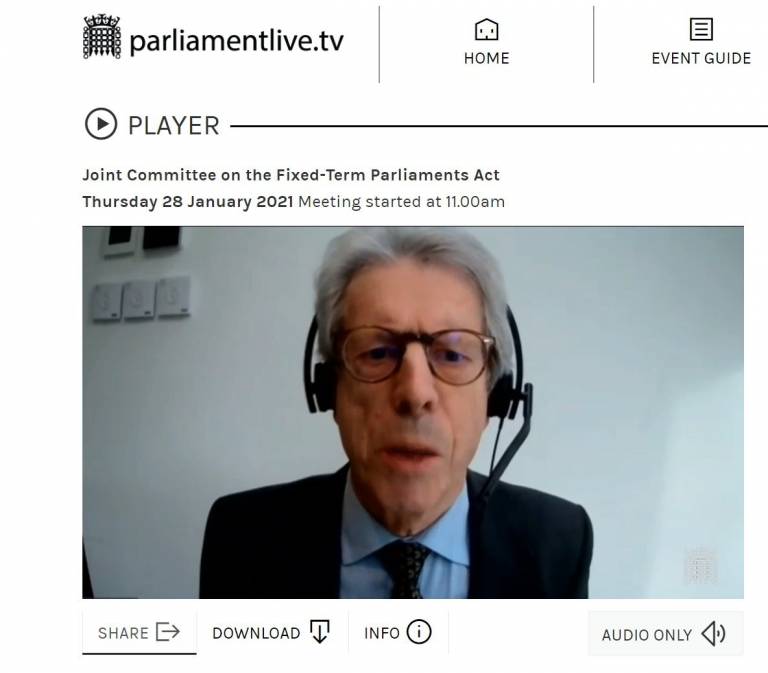Professor Robert Hazell gives evidence to the Joint Committee on the Fixed-Term Parliaments Act
28 January 2021

Professor Robert Hazell was invited to give expert evidence on 28 January 2021 to the Joint Committee on the Fixed-term Parliaments Act, alongside Lord Hennessy of Nympsfield. You can watch the full evidence session here, or read the transcript here. Key points raised by Professor Hazell included the following:
- Dissolution should remain in the hands of parliament, not the executive.
- The government’s draft bill is based on a false premise: a misunderstanding of the causes of gridlock in the 2017 parliament.
- The 2017 parliament was gridlocked, with a government unable to deliver its flagship policy, because of a minority government deeply split within its own ranks, not the FTPA.
- Fixed-term legislation works in other Westminster parliaments, establishing a new norm, which is normally observed, allowing parliaments to run their full term.
- Fixed terms help to ensure predictability in government planning. Before the FTPA, the civil service suffered from debilitating speculation about an early election.
- Replacement legislation should retain fixed terms, but make three amendments to the FTPA regime: to change the threshold for an early general election from two thirds to a simple majority; to clarify the process whereby an alternative government can be formed within 14 days; and to enable the House of Commons to determine the date of any early general election
- Reverting to the prerogative power of dissolution would confer an unfair advantage on the incumbent Prime Minister. Professor Schleiter’s research on elections since 1945 concluded that allowing the Prime Minister to choose the election date confers an advantage of about 6% in votes and 12% in seats.
Key Links
You can watch the full session here or read the transcript
Read Robert and Meg’s written evidence submission to the joint committee inquiry here.
Read Robert’s supplementary evidence submission to the joint committee here.
Read ‘Brexit and Parliament: The Anatomy of a Perfect Storm’ by Professor Meg Russell (open access) here.
 Close
Close

